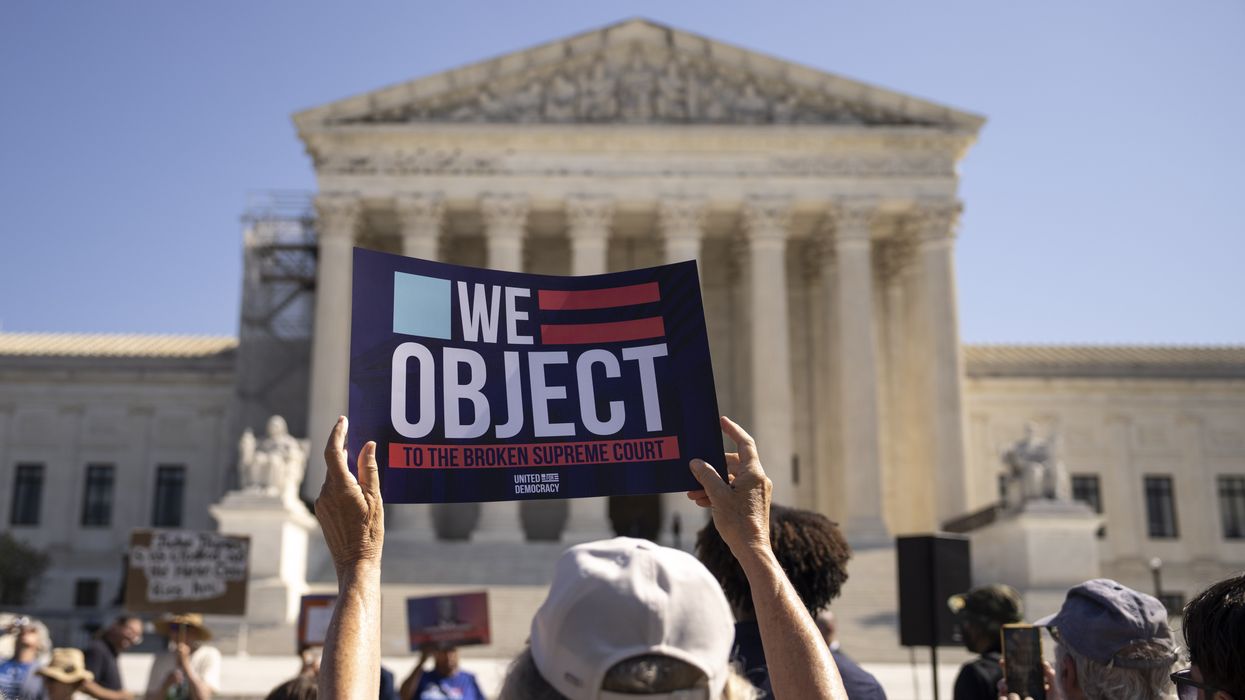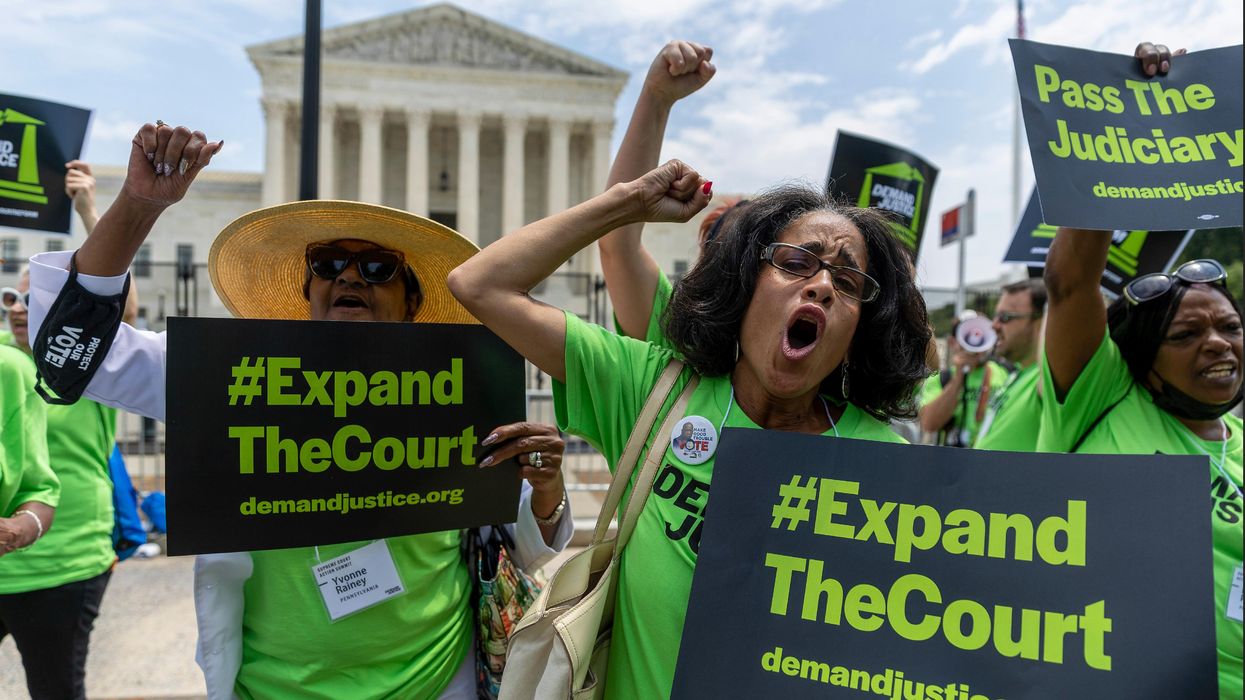"From SCOTUSMap, press reports, our research, and USMS documents, the justices appear to have taken part in 644 activities during the nearly five years covered by the FOIA," the nonprofit
noted. Liberal Justice Sonia Sotomayor's "name appears most often in the USMS documents, as the years of FTC's request coincided with a book tour that took her to a dozen states and several foreign countries."
"There remain a ton of justices' activities that the public does not know about or only learns about years after the fact. What are they trying to hide?"
The group put together a 38-page
document detailing justices' activities, which included: "A trip to Bohemian Grove. A birthday party at Lincoln Center. Religious services at a Brooklyn theater. Annual vacations to Colorado. Dialing in to oral argument from Florida. 'Business meetings.' A meeting with a congressman."
While the total figure includes over 200 activities new to FTC, the group highlighted that it is "most definitely an undercount given the lack of USMS coverage for two of them—one of whom travels to Maine each summer and the other we're certain took several up-until-recently-unreported trips."
"Not one of the public or private engagements, vacations, or layovers described in the documents was a Justice Thomas event. None were Chief Justice Roberts events either," FTC explained. "It is unclear if the two justices' security details are being wholly provided by the exempt-from-FOIA Supreme Court Police... if they're employing private security; or if there's some combination thereof."
Courthouse News Service reported that "the Supreme Court's public information office did not respond to questions about Roberts' and Thomas' use of alternative security services."
Meanwhile, FTC executive director Gabe Roth sounded the alarm about the lack of information on the pair of conservatives.
"The two justices whose comings and goings are probably of the most interest to the general public appear to be shielding some of that travel by solely availing themselves of security resources not subject to open records requests," he said. "Maybe there's an innocuous explanation for this. But given the opacity we've seen from the court, especially when it comes to travel, maybe there's not."
Reporting in the past several months has shown how justices have
benefited from rich friends. For example, last June, ProPublica exposed right-wing Justice Samuel Alito's undisclosed private jet flight to Alaska in 2008 with billionaire Paul Singer.
ProPublica also revealed in August that over the past few decades, Thomas has enjoyed at least "38 destination vacations, including a previously unreported voyage on a yacht around the Bahamas; 26 private jet flights, plus an additional eight by helicopter; a dozen VIP passes to professional and college sporting events, typically perched in the skybox; two stays at luxury resorts in Florida and Jamaica; and one standing invitation to an uber-exclusive golf club overlooking the Atlantic coast."
Recent exposés about the potential influence of wealthy individuals invested in the justices' decisions as well as
low public trust in the high court—which has six right-wingers and three liberals—led to the creation of a voluntary Code of Conduct that critics called a "toothless PR stunt" and discussions of legislative reforms unlikely to advance in the divided Congress.
FTC
advocates for "fixes" including "greater media and public access, Supreme Court term limits, new and robust ethics rules, stronger recusal rules, comprehensive online disclosures, and public appearance notifications."
As Roth said Thursday: "There remain a ton of justices' activities that the public does not know about or only learns about years after the fact. What are they trying to hide?"
"Some of them, like vacations or visiting family—have fun," he continued. "But when a justice is holding, per the marshals, an 'official event' or has seven consecutive protected nights of private 'dinner events,' it's understandable that the public would want more information."
"The pretense that we have a Supreme Court made up of nine above-reproach people doing their best free of corruption is utterly unsustainable."
Responding to the FOIA revelations in a Thursday statement, Revolving Door Project executive director Jeff Hauser and senior researcher Vishal Shankar also stressed the need for reforms at the nation's highest court.
"These bombshell findings from Fix the Court underscore an increasingly undeniable fact: The Supreme Court's right-wing justices have compromised the integrity of a critical public institution by accepting expensive handouts to enjoy secretive, luxurious lifestyles," said Shankar. "These revelations come as the court is hearing radical arguments attacking a functioning administrative state in a series of cases backed by the justices' billionaire benefactors, including Charles Koch."
"We cannot sit and wait for Justice Thomas and others to yet again gut the regulatory state in order to enrich their powerful friends," he added. "Any justice who has accepted luxury gifts or travel from these oligarchs must recuse from
every case in which a party or amicus brief filer is connected to one or more of these oligarchs."
Hauser asserted that "the pretense that we have a Supreme Court made up of nine above-reproach people doing their best free of corruption is utterly unsustainable," and called for action by U.S. Sen. Dick Durbin (D-Ill.).
"If right-wing members of Congress will block serious unpacking of the courts or even ethics reform, then the least we can expect of Senate Judiciary Committee Chair Durbin is that his committee belatedly issued last fall to Harlan Crow and Leonard Leo," Hauser said, referring to men with ties to Thomas.




